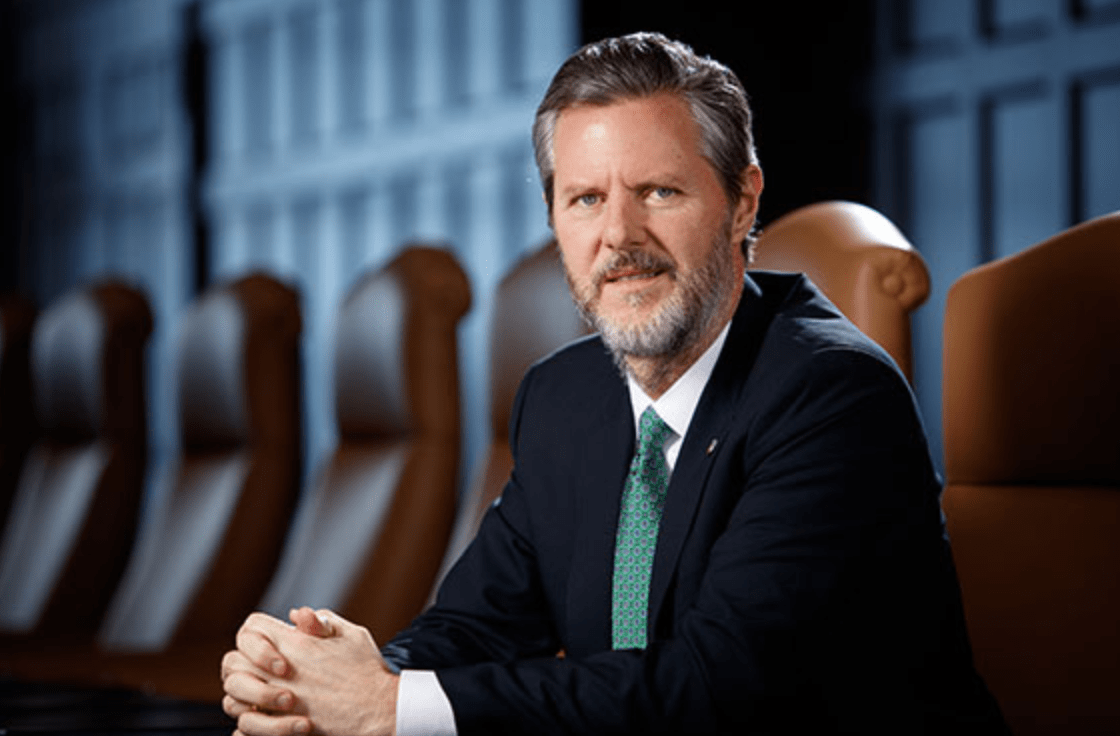
Liberty University president and ardent Trump supporter Jerry Falwell Jr. gave an interview to The Washington Post, and had some interesting thoughts about his support of the president.
When he was asked about other evangelical leaders who’ve criticized him for the support of the president and who “say you need to demand higher moral and ethical standards.” Falwell said, “It may be immoral for them not to support him.” His justification was that employment rates for minority communities were high. He added, “ A lot of the people who criticized me, because they had a hard time stomaching supporting someone who owned casinos and strip clubs or whatever, a lot them have come around and said, ‘Yeah, you were right.’” Though he did not provide any examples of those who have changed their minds.
At a different point in the interview, he said that Trump’s “business acumen” was the reason he supported him. He also touted his views on the importance of “free enterprise, freedom, ingenuity, entrepreneurism and wealth,” saying, “A poor person never gave anybody charity, not of any real volume.”
Ironically, Jesus confronted this very logic in the Gospel. The Bible tells of the story of people giving charitably to the treasury.
Matthew 12:41 explains, “Many rich people threw in large amounts. But a poor widow came and put in two very small copper coins, worth only a few cents. Calling His disciples to Him, Jesus said, ‘Truly I tell you, this poor widow has put more into the treasury than all the others. They all gave out of their wealth; but she, out of her poverty, put in everything—all she had to live on.’”
Falwell does say he thinks differently about “the earthly kingdom and the heavenly kingdom,” but seems to suggest that Jesus’ teachings don’t apply on a policy level—only on a personal one: “In the heavenly kingdom the responsibility is to treat others as you’d like to be treated. In the earthly kingdom, the responsibility is to choose leaders who will do what’s best for your country.”
You can read the entire interview here.





















